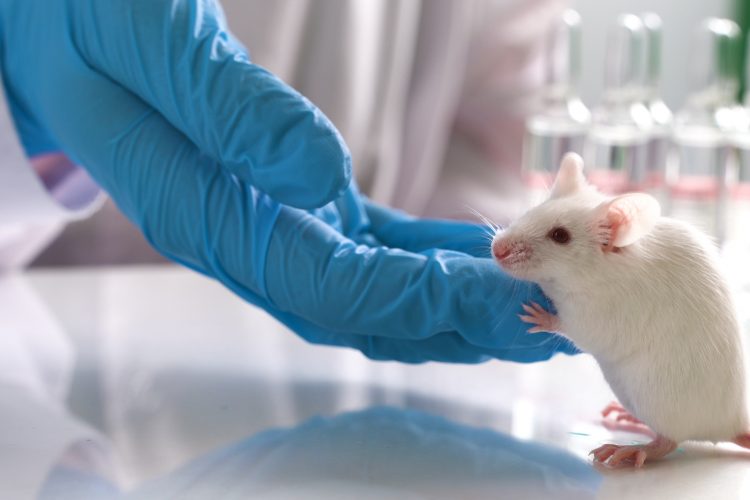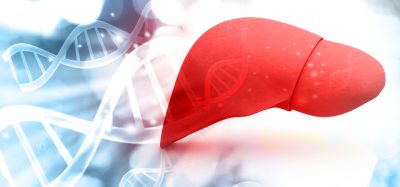Inhaled vaccine induces strong immune response in animal models
Posted: 11 December 2020 | Hannah Balfour (Drug Target Review) | No comments yet
Scientists report their phage-based inhaled vaccine delivery system elicited a robust antibody response in both mice and non-human primates.

Researchers demonstrate in a proof-of-concept study that a phage-based inhalation delivery system for vaccines generates potent antibody responses in mice and non-human primates, without causing lung damage. According to the team, this system could be used to deliver vaccines and therapeutics against respiratory diseases.
“This translational strategy potentially enables more effective delivery of therapeutics or vaccines while reducing the chance of toxic side effects,” said a co-senior author of the study, Wadih Arap, of Rutgers Cancer Institute of New Jersey, US. “In ongoing research, we hope that this work will play a crucial role in the development of targeted vaccines and treatments to block the spread of respiratory infectious diseases, possibly for the current COVID-19 pandemic, especially in the setting of underserved populations.”
The team explained that pulmonary delivery of vaccines and therapeutics is particularly beneficial for the treatment or prevention of against respiratory infections because they arrive directly at the site of the infection. Inhalation-based vaccination is needle free and minimally invasive, which is especially attractive for administrating multiple doses. Additionally, it improves therapeutic bioavailability, negating the risk of drugs being degraded by enzymes in the circulation, while also reducing potential side effects by achieving a more rapid onset of action than needle-based vaccination.
“The very extensive and accessible layer of cell surfaces in the lungs is highly vascularised, which allows rapid absorption of molecules throughout circulation in much higher concentrations by avoiding the drug-metabolising enzymes of the gastrointestinal tract and liver,” said the other co-senior study author, Renata Pasqualini, also from Rutgers Cancer Institute of New Jersey. “Because the lungs are constantly being exposed to pathogens from the air, they likely have a high level of immune defence activity and therefore represent an efficient site for immune protection against airborne pathogens.”
Despite the potential of pulmonary delivery for protecting against airborne pathogens like SARS-CoV-2, Ebola, influenza and measles, it has not been widely adopted. In part, the researchers said, this is because the underlying physiological mechanisms remain largely unknown – and need to be understood for scientists to design a general pulmonary delivery system for widespread use.
In the new study, Arap and Pasqualini devised and validated a safe, effective lung delivery system that could be used for a broad range of translational applications – and showed how it works. The approach involves the use of phages-viruses which infect and replicate within bacterial cells. In certain types of vaccines, phage particles that carry peptides are used to trigger protective immune responses.
To develop their intranasal system, the team first screened for a peptide that could efficiently deliver phage particles across the pulmonary barrier and into the bloodstream. They identified CAKSMGDIVC. According to the team, phage particles expressing CAKSMGDIVC on their surface are absorbed into the body when the peptide binds to and is internalised through its receptor, α3β1 integrin, on the surface of cells lining the lung airways.
In the study, inhaled delivery of CAKSMGDIVC-displaying phage particles elicited a robust antibody response against the phage particles in mice and non-human primates, without damaging the lungs.
According to the authors, the new lung delivery system is safe and effective and has unique advantages for the development of vaccines and therapeutics against airborne pathogens. In particular, the researchers said that because phage particles do not replicate inside eukaryotic cells, they are thought to be safer than other classic viral-based vaccination strategies and have been used as antibiotics against multidrug-resistant bacteria and as vaccine carriers for decades.
The team also said that phage particles are highly stable under harsh environmental conditions and their large-scale production is extremely cost-effective, when compared to traditional methods for vaccine production. Moreover, unlike conventional peptide-based vaccines that often become inactivated, the new lung delivery system has no cumbersome, stringent or expensive cold-chain requirements for field applications in the developing world. “In addition, phage particles are versatile and can be genetically engineered by standard molecular biology technology,” Arap said.
The researchers concluded that they now plan to examine the kinetics of pulmonary transport after multiple doses and investigate cell-based immune responses. “It is important to note that all this work was in preclinical models, so we look forward to the translation of our approach to clinical applications such as lung-targeted drug delivery or pulmonary-based vaccination,” said Pasqualini.
The study was published in Med.
Related topics
Antibodies, Biologics, Drug Delivery, Immunology, In Vivo, Research & Development, Therapeutics, Vaccine
Related conditions
Coronavirus, Covid-19, Ebola, Influenza, Measles
Related organisations
Rutgers Cancer Institute of New Jersey
Related people
Renata Pasqualini, Wadih Arap






